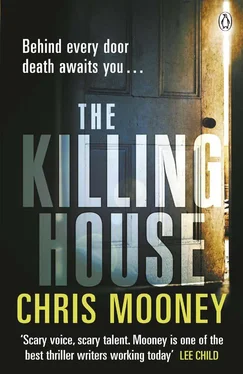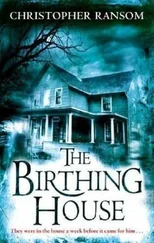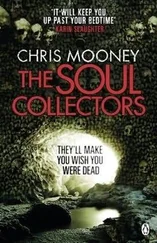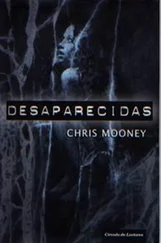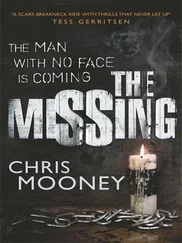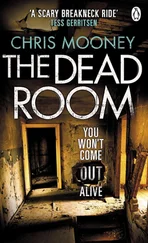Chris Mooney - The Killing House
Здесь есть возможность читать онлайн «Chris Mooney - The Killing House» весь текст электронной книги совершенно бесплатно (целиком полную версию без сокращений). В некоторых случаях можно слушать аудио, скачать через торрент в формате fb2 и присутствует краткое содержание. Жанр: Триллер, на английском языке. Описание произведения, (предисловие) а так же отзывы посетителей доступны на портале библиотеки ЛибКат.
- Название:The Killing House
- Автор:
- Жанр:
- Год:неизвестен
- ISBN:нет данных
- Рейтинг книги:5 / 5. Голосов: 1
-
Избранное:Добавить в избранное
- Отзывы:
-
Ваша оценка:
- 100
- 1
- 2
- 3
- 4
- 5
The Killing House: краткое содержание, описание и аннотация
Предлагаем к чтению аннотацию, описание, краткое содержание или предисловие (зависит от того, что написал сам автор книги «The Killing House»). Если вы не нашли необходимую информацию о книге — напишите в комментариях, мы постараемся отыскать её.
The Killing House — читать онлайн бесплатно полную книгу (весь текст) целиком
Ниже представлен текст книги, разбитый по страницам. Система сохранения места последней прочитанной страницы, позволяет с удобством читать онлайн бесплатно книгу «The Killing House», без необходимости каждый раз заново искать на чём Вы остановились. Поставьте закладку, и сможете в любой момент перейти на страницу, на которой закончили чтение.
Интервал:
Закладка:
The hall turned left and led into a master bedroom transformed into a treatment room. The doctor, a slight Asian woman dressed in a hospital-green smock, stood rigidly by a hospital bed that had been rolled into the centre of the room, the pillow and mattress covered in plastic liners. The other two beds were shrouded with plastic tarps.
The woman’s eyes widened when she saw Fletcher. She backed up as he approached, bumping up against the surgical tools arranged on a rolling stainless-steel cart.
Fletcher caught a faint whiff of the woman’s perfume, a rare and distinctive scent, and knew who she was: Dr Dara Sin.
Paulson placed Santiago on the bed. Fletcher removed the man’s coat. The doctor had already pulled on her latex gloves. The stethoscope draped around her neck swung slightly as she ushered Paulson and Fletcher away from the bed with a wave of her hand. She tore open Santiago’s shirt and listened to his heart and checked his pulse.
Santiago’s light brown skin was covered with scars new and old, welts, sores and cuts. His arms were swollen from oedema. Fletcher wondered if the young man’s fever and decreased level of consciousness had been caused by septic shock, a bacterial infection.
Paulson’s cell rang. He moved into the hall.
‘Demerol, I was told he was given Demerol,’ the doctor barked. ‘How much?’
‘One hundred milligrammes via a slow IV push. He was also being treated with an aggressive IV fluid therapy and a wide-spectrum antibiotic. Cefazolin. I found Lasix on the nightstand. Twenty-milligramme tablets.’
‘Hand me that oxygen tank.’
Fletcher had to walk around a crash cart to reach it. He picked up the tank and placed it near the bed. She strapped the mask across Santiago’s face, set the tank’s gauge to deliver fifteen litres and darted across the room to shelves packed with medical supplies.
Fletcher discovered the source of the bleeding: a curved and raw ten-inch incision that ran from Santiago’s pubic bone and ended just under the bottom of the ribcage, the wound held together by a Frankenstein mess of surgical staples, several of which had torn or were missing.
He must have torn them while vomiting, Fletcher thought. The wound’s distinctive horseshoe-shaped pattern told him what surgical procedure had been performed. It also showed signs of infection. The tissue contained within the island of staples was swollen and, oddly, vibrating as though something was trapped beneath it.
The doctor returned carrying an indwelling Foley catheter. She inserted it into his penis, guiding the tube into the bladder. A moment later the bag filled with urine and blood.
Paulson called from the doorway. Fletcher joined the man in the hall.
‘That was Karim,’ Paulson said in a low voice. ‘He wants you to come to Manhattan straightaway. House is cleared out. Use the garage entrance.’
Fletcher felt he should be with Nathan Santiago when he woke up. The man would be confused and frightened by the strange faces.
‘She’ll take good care of him,’ Paulson said. ‘Anything he needs, we’ve got it covered.’
‘I’ll leave once I know he’s stabilized. Tell the doctor to meet me outside.’
Fletcher needed to clean up the blood on his car seat. He couldn’t afford to have it seen, should he be pulled over during the drive to Manhattan. An unlikely scenario, but one he still had to consider.
The cabinet underneath the kitchen sink held liquid soap and rolls of kitchen towel but no soft cloths, towels or bucket. He ventured outside to the garage and saw a small green glow of light. It belonged to a security camera mounted in the far-right corner. He walked to the back shelves mounted against the wall and helped himself to a small plastic bucket and a stack of folded micro-fibre cloths.
Outside, on the right-hand side of the garage and in clear view, was a garden hose wrapped around an ornate wrought-iron hanger. After he filled the bucket, he added a dollop of soap and placed the spray nozzle on top of the holder.
Fletcher had finished mopping up most of the blood when he heard the porch door open behind him. Light and hesitant footsteps moved down the steps. The doctor. He dropped the bloody cloth into the bucket, cleaned his hands with a fresh piece of kitchen roll and slipped on his sunglasses before leaning back against his car.
43
Even behind the sunglasses’ dark lenses Fletcher could make out the lines etched around the woman’s eyes and mouth. The shoulder-length hair, at one time completely black, was now streaked with grey and white, and was brittle. She hadn’t zipped up her parka. She wore form-fitting chinos and a white shirt cut especially for her petite frame.
She was about to extend a hand when she suddenly tucked it back into her jacket pocket. Clearly Karim had instructed her to not to introduce herself.
‘I understand you wanted to speak to me.’
Fletcher nodded. He caught the distinct scent of her perfume again and in his mind’s eye saw the crime-scene photographs: a pregnant woman bound to an oak kitchen chair; her son and daughter, aged sixteen and fourteen, bound to similar chairs, duct tape strapped across their mouths. He saw blood-splatter patterns on white living room walls; gunshot wounds and soiled boot prints left on an oak hardwood floor.
‘Do you mind if we speak out here?’ she asked. ‘I’d like to stretch my legs, and the sea air feels good — unless you’re cold.’
‘I’m fine, thank you.’
Dr Sin zipped up her jacket and strolled towards the dunes overlooking the water. Fletcher fell into step with her. He suspected the woman knew who he was; her gaze had lingered too long on his face.
‘The man you brought here is in the early stages of septic shock,’ she said.
‘From the kidney removal.’
Dr Sin stopped walking. She had to crane her neck to look up at him.
‘How did you know?’
‘The shape and location of the wound,’ he said.
‘It wasn’t done by a butcher. A trained surgeon made that incision.’
‘A surgeon was, in fact, treating him.’
‘But not in a hospital.’
‘No. It was a… private setting.’
She digested that for a moment. ‘That makes sense,’ she said. ‘When I removed the staples, I found something… well, interesting.’
‘Maggots.’
Surprise bloomed on her face. ‘You’ve seen this sort of thing before?’
‘Upstairs, when I saw the wound and the way the tissue rippled, I suspected maggots since they consume necrotic and infected tissue. It’s an effective, low-cost method of cleaning an infected wound.’
She nodded. ‘American doctors used this technique in the prison camps during the Second World War. They’d take the infected soldiers out to the latrine area and let flies lay their eggs inside the wounds. Then they’d cover them, and after the maggots ate the infected and dead tissue, you’d have clean and sterile wounds. Some hospitals still use the treatment today. Are you a doctor?’
‘No.’
‘But clearly you have some sort of medical training.’
‘No. What else can you tell me?’
She folded her arms across her chest. ‘Here’s what I don’t understand,’ she said, examining the tops of her shoes. ‘Using Lasix after a kidney removal is typical, as the drug stimulates kidney function and urine output. Patients who’ve had a kidney removed are susceptible to infection, so treatment with a wide-spectrum antibiotic is, again, typical. A surgeon or any other reasonably trained medical person would know not to administer Demerol to a patient who is clearly showing signs of septic shock — fever, an increased heart rate and tachypnea, which is rapid breathing. Administering Demerol or another type of narcotic to someone in this condition causes decreased blood pressure, which more often than not results in death. Is there anything else you can tell me?’
Читать дальшеИнтервал:
Закладка:
Похожие книги на «The Killing House»
Представляем Вашему вниманию похожие книги на «The Killing House» списком для выбора. Мы отобрали схожую по названию и смыслу литературу в надежде предоставить читателям больше вариантов отыскать новые, интересные, ещё непрочитанные произведения.
Обсуждение, отзывы о книге «The Killing House» и просто собственные мнения читателей. Оставьте ваши комментарии, напишите, что Вы думаете о произведении, его смысле или главных героях. Укажите что конкретно понравилось, а что нет, и почему Вы так считаете.
